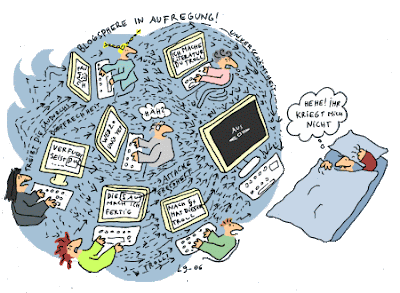The blogosphere is a term used to describe the millions of interconnected blogs on the Internet. The term was first used in late 1999 as a joke, and continued to be used sporadically as a humorous term for the next few years. The blogosphere is a way of describing the social creature that grows from a critical mass of blogs.
So what’s so great about mining the blogosphere? What can you find in the world of blogs? I think I can sum it up in one word: people. Blogs are all about personal, customized content – what you read is what you get. For instance, I have a personal blog in which I write about my daily life with my family, my cats, and life in general. Sure, it’s probably not interesting to anyone but me, but it’s got that all-important element of “people” in it.
When you start poking around the blogosphere, you’re going to get a lot of blogs about cats (not kidding), but you’re also going to get blogs centered around someone’s political views, another person’s take on the latest fashion flubs, somebody else’s opinion on technology news, and so much more. The blogosphere is the personal side of the World Wide Web, and there’s definitely a lot to explore.


